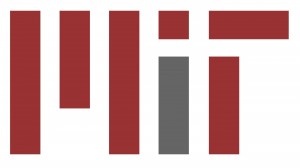MIT Bitcoin project is fully underway
 Bringing Bitcoin to the new generation of college students is a large and important task. And what better place to start than the campus of one of the most well-respected technical schools in the world, the Massachusetts Institute of Technology, MIT? That’s just the idea that Dan Elitzer, founder of the MIT Bitcoin club and student at MIT’s Sloan School of Business, decided to put into practice. Jeremy Rubin, an MIT CS undergrad, worked together with Elitzer to get access to funding for a very impressive plan: give away $100 in Bitcoin to every incoming undergraduate student at MIT – a half-million dollar expenditure. Along with needing to secure the funds necessary to operate and facilitate the giveaway, the pair also needed to put in time and effort to promoting the use and acceptance of the young cryptocurrency on MIT’s campus and in the surrounding area.
Bringing Bitcoin to the new generation of college students is a large and important task. And what better place to start than the campus of one of the most well-respected technical schools in the world, the Massachusetts Institute of Technology, MIT? That’s just the idea that Dan Elitzer, founder of the MIT Bitcoin club and student at MIT’s Sloan School of Business, decided to put into practice. Jeremy Rubin, an MIT CS undergrad, worked together with Elitzer to get access to funding for a very impressive plan: give away $100 in Bitcoin to every incoming undergraduate student at MIT – a half-million dollar expenditure. Along with needing to secure the funds necessary to operate and facilitate the giveaway, the pair also needed to put in time and effort to promoting the use and acceptance of the young cryptocurrency on MIT’s campus and in the surrounding area.
They’ve been quite successful. They received funding by asking around to members of the Bitcoin community as well as to alumni and others who remain somewhat connected to the MIT community, and found their funding without as much trouble as might have been expected for such an ambitious project. But that’s not to say they’ve never stumbled. They have.
Rubin and a team of his peers created a product called TidBit, designed to replace ad revenue for websites by having visitors mine Bitcoin, had a subpoena from New Jersey foisted – rather illegitimately – upon them, in a move described as unconstitutional. The subpoena, the EFF states, clearly violates Rubin’s fifth amendment protection against self-incrimination. New Jersey also failed to show the equivalent of legal standing in the case – Rubin lives in Massachusetts, and New Jersey is only involved with him because citizens of New Jersey could theoretically be using websites running TidBit, which they claim could be a violation of anti-hacking (and similar) laws, because TidBit uses someone’s computer resources without their knowledge.
Another stumbling block encountered by Elitzer and Rubin’s project has been media commentary. One particular commentator pointed out the potential for a conflict of interest that exists, poignantly writing, “But certainly, the university community might take pause, or even be taken aback, if MIT substituted for ‘Bitcoin’ here at the magnitude of this deal, almost any other product. Say a group of coal investors gave every one of the 4,500 students $100 in coal stock? What if a soda company gave the same group of hyper-smart, tech-savvy 18-to-22-year-olds a stake in the future of the stuff in hopes that their outsized influence online would give the company a big boost? It certainly starts to feel icky–and a little exploitative of the MIT community–and raises ethical questions.” The point is on the surface valid, but unfortunately the specific example misses the mark – a better analogy might be to say:
“Say Apple gave every one of the 4,500 students an iPod Classic” in the year 2001, when portable MP3 players were the newest, biggest hit technology?
Any commentator who would call this a serious issue is, I’m afraid, completely missing the point. Giving away a product to students at one of the best technology campuses in the world so that they can be more immersed in it than they otherwise would be is a great idea. Yes, the people organizing the giveaway might profit. But the students will profit much more. The stance that this is an ethical conflict is only a sustainable belief until the writer gets over the idea that Bitcoin is just an investment – it’s also the most important technological innovation since the internet, one heralded by commentators across the technology sector.
Regardless, the issues faced by the MIT duo have mostly abated at this point. The MIT Bitcoin giveaway project officially launched yesterday. Students have a week to sign up to receive their free $100 worth of Bitcoin. The Bitcoin community – and, in theory, the MIT community – are waiting with baited breath to see how this experiment turns out. If it’s a success quickly enough, then perhaps we will see copycat programs spring up in other places. I’m a graduate of George Mason University, an institution not known for its technology work, but instead known for its political ideologies – being one of a very, very few economically right-leaning campuses. Some have even called it a libertarian paradise – perhaps I’ll get to see a program like this spring up to serve the students of my alma mater. Any wealthy investors who feel the same, please, don’t hesitate to get in touch.
Thanks for reading.








